
The New "Normal"?
Conference speaker bios are below in alphabetical order.
- Stella Aslibekyan
- Carlos D. Bustamante
- George Q. Daley
- Haydar Frangoul
- Birgit Funke
- Sabine Hadida
- Isaac Kohane
- Arjun Manrai
- Alicia R. Martin
- Jimi Olaghere
- Aniruddh Patel
- Sharon E. Plon
- Heidi Rehm
- Vandana Shashi
- Shamil Sunyaev
- Jeffrey M. Venstrom
Stella Aslibekyan
 Stella leads the Genetic Epidemiology team at 23andMe. Throughout her research career, she has focused on the "nature and nurture" question-- i.e. the interplay of genetic and environmental factors in determining disease risk. She has investigated this question in a variety of populations using several complementary approaches. For example, her prior projects have investigated how environmental influences can become embodied in the genome through DNA methylation and go on to influence the risk of cardiovascular disease. Stella's past work has been funded by the National Institutes of Health and the American Heart Association. Currently, she looks at the 'nature and nurture' question from a different angle-- how can we integrate the large-scale genetic and phenotypic data available at 23andMe to accurately assess disease risk? Stella's team works on understanding and predicting a variety of outcomes, notably cardiometabolic diseases and long-term sequelae of COVID-19.
Stella leads the Genetic Epidemiology team at 23andMe. Throughout her research career, she has focused on the "nature and nurture" question-- i.e. the interplay of genetic and environmental factors in determining disease risk. She has investigated this question in a variety of populations using several complementary approaches. For example, her prior projects have investigated how environmental influences can become embodied in the genome through DNA methylation and go on to influence the risk of cardiovascular disease. Stella's past work has been funded by the National Institutes of Health and the American Heart Association. Currently, she looks at the 'nature and nurture' question from a different angle-- how can we integrate the large-scale genetic and phenotypic data available at 23andMe to accurately assess disease risk? Stella's team works on understanding and predicting a variety of outcomes, notably cardiometabolic diseases and long-term sequelae of COVID-19.
Carlos D. Bustamante
 Carlos D. Bustamante is a scientist, investor/operator, and academic. For over 20 years, he has lead Bustamante Lab and overseen teams at the interface of genomics, data science, and global health with a focus on accelerating genomic discoveries in understudied human population. He is, most recently, the founder and CEO of Galatea Bio, an early stage biotechnology company in Miami, FL focused on using genomics and data science to drive precision health at scale for all.
Carlos D. Bustamante is a scientist, investor/operator, and academic. For over 20 years, he has lead Bustamante Lab and overseen teams at the interface of genomics, data science, and global health with a focus on accelerating genomic discoveries in understudied human population. He is, most recently, the founder and CEO of Galatea Bio, an early stage biotechnology company in Miami, FL focused on using genomics and data science to drive precision health at scale for all.
He was on the faculty at Cornell (2002–2009) and then Stanford (2010–) where co-founded the Cornell Center for Computational and Population Genomics, the Stanford Center for Computational, Evolutionary, and Human Genomics (2012–2016) and was the inaugural Chair of the Department of Biomedical Data Science at Stanford Medicine (2016–2019). Bustamante has also taught at the University of Miami since 2017 and works with the entrepreneurship and technology groups at Miami Herbert Business School. He has been active in the private sector as an advisor, board member, and consultant to over a dozen startups and established companies including Personalis, InVitae, Embark Vet, Dovetail Genomics, ARC Bio, and Eden Roc Sciences. In 2019, he joined Fidelity’s early stage biotech venture group, F-Prime Capital as a Venture Partner where he was a member of the Health Data Science and the COVID-19 Therapeutics and Diagnostics teams.
George Q. Daley
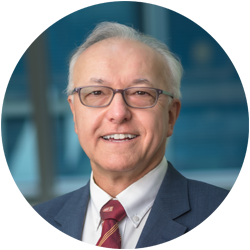 George Q. Daley, MD, PhD, is the dean of Harvard Medical School and the Caroline Shields Walker Professor of Medicine. A physician-scientist and an authority on stem cell science and cancer biology, his discoveries have twice been cited in Science magazine’s Top 10 Breakthroughs of the Year. He has co-authored international guidelines for the conduct and clinical translation of stem cell research and regenerative medicine and for ethical oversight of emerging biotechnologies. Daley’s priorities as dean of HMS include fostering innovative biomedical, computational and health care policy research, building a pipeline of novel therapeutics founded on basic science, nurturing the next generation of physician-scientists and advancing diversity in science, technology, engineering and medicine. Daley earned his AB and MD degrees from Harvard and a PhD in biology from MIT, and has worked as a trainee, fellow and staff physician at several HMS–affiliated hospitals.
George Q. Daley, MD, PhD, is the dean of Harvard Medical School and the Caroline Shields Walker Professor of Medicine. A physician-scientist and an authority on stem cell science and cancer biology, his discoveries have twice been cited in Science magazine’s Top 10 Breakthroughs of the Year. He has co-authored international guidelines for the conduct and clinical translation of stem cell research and regenerative medicine and for ethical oversight of emerging biotechnologies. Daley’s priorities as dean of HMS include fostering innovative biomedical, computational and health care policy research, building a pipeline of novel therapeutics founded on basic science, nurturing the next generation of physician-scientists and advancing diversity in science, technology, engineering and medicine. Daley earned his AB and MD degrees from Harvard and a PhD in biology from MIT, and has worked as a trainee, fellow and staff physician at several HMS–affiliated hospitals.
Haydar Frangoul
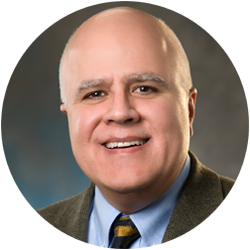 Haydar Frangoul, MD, MS. is the Director of the Pediatric Stem Cell Transplant program at Tristar Centennial Children's Hospital and the Sarah Cannon Research Institute in Nashville Tennessee. Dr Frangoul completed his MD degree at the American University of Beirut followed by Pediatric residency at Duke University. He then went to complete a fellowship in Pediatric Hematology/Oncology and Stem Cell Transplant at the University of Washington and the Fred Hutchinson Cancer Center. He was the Carolyn Perot Rathjen Endowed Professor of Pediatric Hematology/Oncology at Vanderbilt University until 2015 when he joined Sarah Cannon Research Institute to lead the Pediatric Stem Cell Transplant Program. Dr Frangoul had leadership positions in the Children Oncology group, and Pediatric Blood and Marrow Transplant Consortium. His primary interest is allogeneic stem cell transplant using an alternative donor sources especially for non-malignant diseases. Dr Frangoul has authored or co-authored more than 130 peer reviewed manuscripts. He has been an invited speaker at numerous national and international conferences. He has been one of the leading investigators in a clinical trial using CRISPR-Cas9 gene editing for patients with sickle cell disease and transfusion dependent thalassemia.
Haydar Frangoul, MD, MS. is the Director of the Pediatric Stem Cell Transplant program at Tristar Centennial Children's Hospital and the Sarah Cannon Research Institute in Nashville Tennessee. Dr Frangoul completed his MD degree at the American University of Beirut followed by Pediatric residency at Duke University. He then went to complete a fellowship in Pediatric Hematology/Oncology and Stem Cell Transplant at the University of Washington and the Fred Hutchinson Cancer Center. He was the Carolyn Perot Rathjen Endowed Professor of Pediatric Hematology/Oncology at Vanderbilt University until 2015 when he joined Sarah Cannon Research Institute to lead the Pediatric Stem Cell Transplant Program. Dr Frangoul had leadership positions in the Children Oncology group, and Pediatric Blood and Marrow Transplant Consortium. His primary interest is allogeneic stem cell transplant using an alternative donor sources especially for non-malignant diseases. Dr Frangoul has authored or co-authored more than 130 peer reviewed manuscripts. He has been an invited speaker at numerous national and international conferences. He has been one of the leading investigators in a clinical trial using CRISPR-Cas9 gene editing for patients with sickle cell disease and transfusion dependent thalassemia.
Birgit Funke
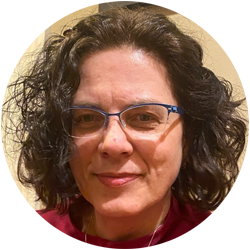 Dr. Funke received her Ph.D. from the University of Würzburg, Germany and trained as a postdoctoral fellow at the Albert Einstein College of Medicine where she identified the gene for 22q11 deletion syndrome. She is Board certified in Clinical Molecular Genetics, served as Associate Professor of Pathology at Harvard Medical School where she was among the first worldwide to implement clinical NGS in 2011 at the Laboratory for Molecular Medicine in Cambridge.
Dr. Funke received her Ph.D. from the University of Würzburg, Germany and trained as a postdoctoral fellow at the Albert Einstein College of Medicine where she identified the gene for 22q11 deletion syndrome. She is Board certified in Clinical Molecular Genetics, served as Associate Professor of Pathology at Harvard Medical School where she was among the first worldwide to implement clinical NGS in 2011 at the Laboratory for Molecular Medicine in Cambridge.
In addition, Dr. Funke is known for leading international efforts to develop professional standards and guidelines for clinical genomic knowledge curation as well as development and validation of clinical genomic tests.
Today, Dr. Funke is Associate Professor at the Icahn School of Medicine at Mount Sinai and Vice President of Genomic Health at Sema4. Her long-term goal is to help increase the use genomic testing in clinical care, especially for disease prevention.
Sabine Hadida
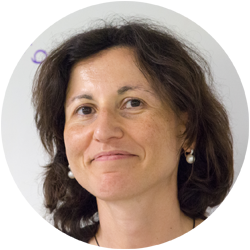 Sabine Hadida, Ph.D., is a Senior Vice President and the Site Head at Vertex in San Diego.
Sabine Hadida, Ph.D., is a Senior Vice President and the Site Head at Vertex in San Diego.
Since joining Vertex in 2002, Dr. Hadida has led the company’s chemistry team that is working in cystic fibrosis (CF) and pain. During that time, the team has discovered the now-approved medicines, KALYDECO, ORKAMBI, SYMDEKO and TRIKAFTA as well as multiple medicines in pre-clinical and clinical development. In June 2022, Dr. Hadida transitioned to lead the San Diego site.
Previously, Dr. Hadida held a research scientist position at Combichem, Inc. in San Diego, which later was bought by DuPont Pharmaceuticals, Bristol Myers-Squibb, and Deltagen Research Laboratories.
Dr. Hadida received her Bachelor’s, Master’s and PhD in Pharmacy from the University of Barcelona, Spain. Additionally, she spent two years conducting postdoctoral research on fluorous chemistry at the University of Pittsburgh.
Dr. Hadida has published over 30 peer reviewed papers and is inventor of over 60 U.S. patents. She received several scientific awards, most recently the 2022 MCBD Drug Hunter Award, the 2019 Distinguished Scientist Award by the American Chemistry Society, San Diego Chapter, and the 2013 ACS Heroes of Chemistry award by the American Chemistry Society for excellence in innovation and success in Vertex’s development of KALYDECO. Sabine also received the Vertex Platinum Research Award and the Vertex Palladium Leadership Award.
Isaac Kohane
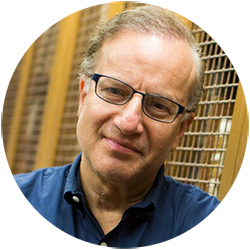 Isaac (Zak) Kohane, MD, PhD is the inaugural Chair of the Department of Biomedical Informatics and the Marion V. Nelson Professor of Biomedical Informatics at Harvard Medical School. He served as co-author of the Institute of Medicine Report on Precision Medicine that has been the template for national efforts. He develops and applies computational techniques to address disease at multiple scales: from whole healthcare systems as “living laboratories” to the functional genomics of neurodevelopment with a focus on autism.
Isaac (Zak) Kohane, MD, PhD is the inaugural Chair of the Department of Biomedical Informatics and the Marion V. Nelson Professor of Biomedical Informatics at Harvard Medical School. He served as co-author of the Institute of Medicine Report on Precision Medicine that has been the template for national efforts. He develops and applies computational techniques to address disease at multiple scales: from whole healthcare systems as “living laboratories” to the functional genomics of neurodevelopment with a focus on autism.
Over the last 30 years, Zak’s research agenda has been driven by the vision of what biomedical researchers could do to find new cures, provide new diagnoses and deliver the best care available if data could be converted more rapidly to knowledge and knowledge to practice. In so doing, Kohane has designed and led multiple internationally adopted efforts to “instrument” the healthcare enterprise for discovery and to enable innovative decision-making tools to be applied to the point of care. At the same time, the new insights afforded by ’omic-scale molecular analyses have inspired him and his collaborators to work on re-characterizing and reclassifying diseases such as autism, rheumatoid arthritis and cancers. In many of these studies, the developmental trajectories of thousands of genes have been a powerful tool in unraveling complex diseases.
In 1987, Zak earned his MD/PhD from Boston University and then completed his post-doctoral work at Boston Children’s Hospital, where he has since worked as a pediatric endocrinologist. He joined the faculty at Harvard Medical School in 1992, serving as Director of Countway Library from 2005–2015 and as Co-Director of the Center for Biomedical Informatics during the same period, before it became the Department of Biomedical informatics in July 2015. Zak has published several hundred papers in the medical literature and authored a widely-used book on Microarrays for an Integrative Genomics. He is a member of the Institute of Medicine and the American Society for Clinical Investigation.
Arjun Manrai
 Arjun (Raj) Manrai, PhD is an Assistant Professor in the Department of Biomedical Informatics at Harvard Medical School, where he directs a research lab of machine learning scientists, clinicians, and biomedical data scientists working to improve medical decision-making using computation. His group develops quantitative approaches to support physicians in making probabilistic and data-driven decisions using genomic and blood laboratory data, with attention to decision making across populations. His long-term goal is to develop new computational approaches that incorporate rich and deep representations of clinical state and identity into care.
Arjun (Raj) Manrai, PhD is an Assistant Professor in the Department of Biomedical Informatics at Harvard Medical School, where he directs a research lab of machine learning scientists, clinicians, and biomedical data scientists working to improve medical decision-making using computation. His group develops quantitative approaches to support physicians in making probabilistic and data-driven decisions using genomic and blood laboratory data, with attention to decision making across populations. His long-term goal is to develop new computational approaches that incorporate rich and deep representations of clinical state and identity into care.
Active projects in Dr. Manrai’s group include improving genetic variant classification and quantifying risk (“penetrance”) in clinical genomics with a focus on inherited heart disease, disentangling demographic and clinical structure in blood laboratory biomarkers with a focus on kidney disease, developing semi and self-supervised learning methods for mining medical data, and modeling fundamental reproducibility and adoption challenges associated with the clinical deployment of artificial intelligence.
Manrai’s research has been published in the New England Journal of Medicine and JAMA, presented at the National Academy of Sciences, and featured in the New York Times, Wall Street Journal, and NPR. Students from the group have won the Rhodes, PD Soros, and other awards to continue their training and research in machine learning and medicine.
Manrai received an A.B. in Physics with Highest Honors from Harvard (2008) and a Ph.D. in Bioinformatics and Integrative Genomics from the Harvard-MIT Division of Health Sciences and Technology (2015).
Alicia Martin
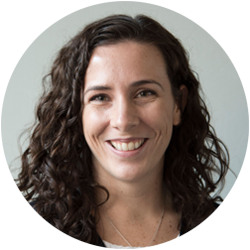 Alicia R. Martin, Ph.D., is an Assistant Investigator at the Analytic & Translational Genetics Unit at Massachusetts General Hospital, an Assistant Professor at Harvard Medical School, and an Associate Member at the Broad Institute affiliated with the Stanley Center for Psychiatric Research and the Medical and Population Genetics Program. As a population and statistical geneticist, her research examines the role of human history in shaping global genetic and phenotypic diversity. Given vast Eurocentric study biases, she investigates the generalizability of knowledge gained from large-scale genetic studies across globally diverse populations. She is particularly focused on ensuring that the translation of genetic technologies via polygenic risk does not exacerbate health disparities induced by these study biases. Towards this end, she is developing statistical methods, community resources for genomics, and research capacity for multi-ancestry studies particularly in underrepresented populations.
Alicia R. Martin, Ph.D., is an Assistant Investigator at the Analytic & Translational Genetics Unit at Massachusetts General Hospital, an Assistant Professor at Harvard Medical School, and an Associate Member at the Broad Institute affiliated with the Stanley Center for Psychiatric Research and the Medical and Population Genetics Program. As a population and statistical geneticist, her research examines the role of human history in shaping global genetic and phenotypic diversity. Given vast Eurocentric study biases, she investigates the generalizability of knowledge gained from large-scale genetic studies across globally diverse populations. She is particularly focused on ensuring that the translation of genetic technologies via polygenic risk does not exacerbate health disparities induced by these study biases. Towards this end, she is developing statistical methods, community resources for genomics, and research capacity for multi-ancestry studies particularly in underrepresented populations.
Jimi Olaghere
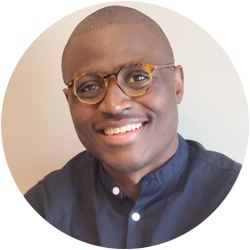 Born in Washington, DC, Jimi spent his early childhood in Nigeria. Upon returning to the United States, Jimi studied Business & IT at university. He has faced many complications living with sickle cell disease—a condition he has lived with since childhood, caused by mutations in a gene that regulates hemoglobin production—from a heart attack, pulmonary embolism, avascular necrosis and countless pain crises. In 2020, Jimi participated in a groundbreaking clinical trial and underwent successful gene-editing therapy, becoming one of the first seven patients with sickle cell anemia in the US to receive this treatment. Today, he is thriving and living pain free with his family.
Born in Washington, DC, Jimi spent his early childhood in Nigeria. Upon returning to the United States, Jimi studied Business & IT at university. He has faced many complications living with sickle cell disease—a condition he has lived with since childhood, caused by mutations in a gene that regulates hemoglobin production—from a heart attack, pulmonary embolism, avascular necrosis and countless pain crises. In 2020, Jimi participated in a groundbreaking clinical trial and underwent successful gene-editing therapy, becoming one of the first seven patients with sickle cell anemia in the US to receive this treatment. Today, he is thriving and living pain free with his family.
Aniruddh Patel
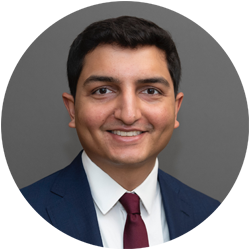 Dr. Aniruddh Patel is a cardiologist at Massachusetts General Hospital (MGH) focused on multi-modal cardiovascular risk prediction. He received his MD from the Yale School of Medicine and went on to complete clinical training in Internal Medicine and cardiology at Massachusetts General Hospital. He completed postdoctoral research with Dr. Amit Khera and Pradeep Natarajan in human genetics at the Broad Institute of MIT and Harvard prior to accepting a junior faculty position. His research focuses on integrating genetics, biomarkers, and clinical factors into disease risk prediction and advancing the clinical actionability of genomic medicine.
Dr. Aniruddh Patel is a cardiologist at Massachusetts General Hospital (MGH) focused on multi-modal cardiovascular risk prediction. He received his MD from the Yale School of Medicine and went on to complete clinical training in Internal Medicine and cardiology at Massachusetts General Hospital. He completed postdoctoral research with Dr. Amit Khera and Pradeep Natarajan in human genetics at the Broad Institute of MIT and Harvard prior to accepting a junior faculty position. His research focuses on integrating genetics, biomarkers, and clinical factors into disease risk prediction and advancing the clinical actionability of genomic medicine.
Sharon E. Plon
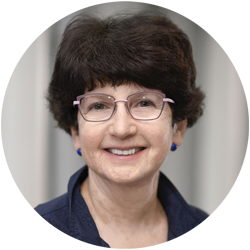 Dr. Sharon Plon is a board-certified medical geneticist and a longstanding cancer genetics researcher identifying new cancer susceptibility genes and stuyding the implementation of genomic testing in medicine. Dr. Plon holds the Dan L Duncan Comprehensive Cancer Center Professorship at Baylor College of Medicine. Dr. Plon serves as PI with Donald (Will) Parsons and Amy McGuire on the NHGRI/NCI- U01 Texas KidsCanSeq multi-institutional trial that studies the incorporation of CLIA clinical genome-scale exome sequencing into the care of childhood cancer patients in the diverse patient populations in Texas. Since 2013, Dr. Plon has served as one of the Principal Investigators of the Clinical Genome (ClinGen) Resource and co-chairs the ClinGen hereditary cancer effort. She also currently co-chairs the germline reporting effort of the national NCI/COG Pediatric MATCH Precision Oncology trial.
Dr. Sharon Plon is a board-certified medical geneticist and a longstanding cancer genetics researcher identifying new cancer susceptibility genes and stuyding the implementation of genomic testing in medicine. Dr. Plon holds the Dan L Duncan Comprehensive Cancer Center Professorship at Baylor College of Medicine. Dr. Plon serves as PI with Donald (Will) Parsons and Amy McGuire on the NHGRI/NCI- U01 Texas KidsCanSeq multi-institutional trial that studies the incorporation of CLIA clinical genome-scale exome sequencing into the care of childhood cancer patients in the diverse patient populations in Texas. Since 2013, Dr. Plon has served as one of the Principal Investigators of the Clinical Genome (ClinGen) Resource and co-chairs the ClinGen hereditary cancer effort. She also currently co-chairs the germline reporting effort of the national NCI/COG Pediatric MATCH Precision Oncology trial.
Heidi Rehm
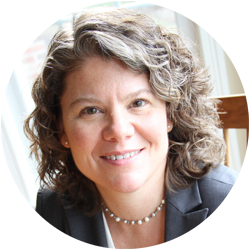 Heidi Rehm is the Chief Genomics Officer in the Department of Medicine and at the Center for Genomic Medicine at Massachusetts General Hospital working to integrate genomics into medical practice. She is a board-certified laboratory geneticist and Medical Director of the Broad Institute Clinical Research Sequencing Platform working to guide genomic testing for clinical and clinical research use. She is also Co-Director of the Program in Medical and Population Genetics at the Broad Institute and Professor of Pathology at Harvard Medical School. She is a principal investigator of ClinGen, providing free and publicly accessible resources to support the interpretation of genes and variants. Rehm also co-leads the Broad Center for Mendelian Genomics focused on discovering novel rare disease genes and co-leads the Matchmaker Exchange to also aid in gene discovery. She is a strong advocate and pioneer of open science and data sharing, working to extend these approaches through her role as vice chair of the Global Alliance for Genomics and Health. Rehm is also a principal investigator of the Broad-LMM-Color All of Us Genome Center supporting the sequencing and return of results to a cohort of one million individuals in the US and co-leading gnomAD, the Genome Aggregation Database.
Heidi Rehm is the Chief Genomics Officer in the Department of Medicine and at the Center for Genomic Medicine at Massachusetts General Hospital working to integrate genomics into medical practice. She is a board-certified laboratory geneticist and Medical Director of the Broad Institute Clinical Research Sequencing Platform working to guide genomic testing for clinical and clinical research use. She is also Co-Director of the Program in Medical and Population Genetics at the Broad Institute and Professor of Pathology at Harvard Medical School. She is a principal investigator of ClinGen, providing free and publicly accessible resources to support the interpretation of genes and variants. Rehm also co-leads the Broad Center for Mendelian Genomics focused on discovering novel rare disease genes and co-leads the Matchmaker Exchange to also aid in gene discovery. She is a strong advocate and pioneer of open science and data sharing, working to extend these approaches through her role as vice chair of the Global Alliance for Genomics and Health. Rehm is also a principal investigator of the Broad-LMM-Color All of Us Genome Center supporting the sequencing and return of results to a cohort of one million individuals in the US and co-leading gnomAD, the Genome Aggregation Database.
Vandana Shashi
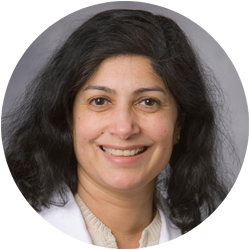 Vandana Shashi is a clinical geneticist and a pediatrician at Duke University Hospital with a deep interest in undiagnosed and rare genetic disorders. She provides medical care for children and adults with chromosome 22q11.2 deletion syndrome and diagnostic evaluation for patients with symptoms and signs of genetic disorders, when evaluations have not provided a specific diagnosis. As a principal investigator for the Duke NIH Undiagnosed Diseases Network (UDN) site, Shashi is involved in arranging detailed clinical evaluation for children and adults with undiagnosed diseases and in the interpretation of the genome sequencing that is performed as part of the initiative to obtain a diagnosis in these individuals. She also served as a Co-Chair of the UDN steering committee and is a standing member of the UDN executive committee. Shashi received her medical degree from Kasturba Medical College Manipal and has been in practice for more than 35 years.
Vandana Shashi is a clinical geneticist and a pediatrician at Duke University Hospital with a deep interest in undiagnosed and rare genetic disorders. She provides medical care for children and adults with chromosome 22q11.2 deletion syndrome and diagnostic evaluation for patients with symptoms and signs of genetic disorders, when evaluations have not provided a specific diagnosis. As a principal investigator for the Duke NIH Undiagnosed Diseases Network (UDN) site, Shashi is involved in arranging detailed clinical evaluation for children and adults with undiagnosed diseases and in the interpretation of the genome sequencing that is performed as part of the initiative to obtain a diagnosis in these individuals. She also served as a Co-Chair of the UDN steering committee and is a standing member of the UDN executive committee. Shashi received her medical degree from Kasturba Medical College Manipal and has been in practice for more than 35 years.
Shamil Sunyaev
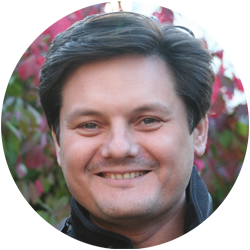 Shamil Sunyaev is a computational genomicist and geneticist. Research in his lab encompasses many aspects of population genetic variation including the origin of mutations, the effect of allelic variants on molecular function, population and evolutionary genetics, and genetics of human complex and Mendelian traits. He developed several computational and statistical methods widely adopted by the community. Sunyaev obtained a PhD in molecular biophysics from the Moscow Institute of Physics and Technology and completed his postdoctoral training in bioinformatics at the European Molecular Biology Laboratory (EMBL). He is an Associate Member at Broad Institute of MIT and Harvard. He co-leads the NHGRI-funded Genome Sequencing Program Analysis Center and is actively involved in the Undiagnosed Diseases Network and in the Brigham Genomic Medicine program. He also co-organizes the Boston Evolutionary Genomics Group.
Shamil Sunyaev is a computational genomicist and geneticist. Research in his lab encompasses many aspects of population genetic variation including the origin of mutations, the effect of allelic variants on molecular function, population and evolutionary genetics, and genetics of human complex and Mendelian traits. He developed several computational and statistical methods widely adopted by the community. Sunyaev obtained a PhD in molecular biophysics from the Moscow Institute of Physics and Technology and completed his postdoctoral training in bioinformatics at the European Molecular Biology Laboratory (EMBL). He is an Associate Member at Broad Institute of MIT and Harvard. He co-leads the NHGRI-funded Genome Sequencing Program Analysis Center and is actively involved in the Undiagnosed Diseases Network and in the Brigham Genomic Medicine program. He also co-organizes the Boston Evolutionary Genomics Group.
Jeffrey M. Venstrom
 Jeffrey Venstrom, MD is Senior Vice President of Medical Affairs and Chief Medical Officer at GRAIL. Previously, he served as Chief Medical Partner, Cross-Portfolio (Oncology, Neurology) at Roche. Prior to that, he was Senior Vice President, Head of Clinical Development, and Medical Affairs at Foundation Medicine. Jeffrey also established and led the Hematology Biomarker Franchise at Genentech. He was also Krishnamurthi Endowed Chair in Hematologic Malignancies at The University of California – San Francisco.
Jeffrey Venstrom, MD is Senior Vice President of Medical Affairs and Chief Medical Officer at GRAIL. Previously, he served as Chief Medical Partner, Cross-Portfolio (Oncology, Neurology) at Roche. Prior to that, he was Senior Vice President, Head of Clinical Development, and Medical Affairs at Foundation Medicine. Jeffrey also established and led the Hematology Biomarker Franchise at Genentech. He was also Krishnamurthi Endowed Chair in Hematologic Malignancies at The University of California – San Francisco.
Jeff completed Hematology and Oncology clinical and post-graduate research training at Memorial Sloan-Kettering Cancer Center. He received his graduate medical training at Johns Hopkins Hospital and his medical degree from Vanderbilt University.
The conference is sponsored by Merck and Takeda.

What do we mean by “precision medicine”? From the perspective of one of the members of the National Academy of Sciences committee that wrote the report, we mean taking an explicit multidimensional view of patients: not just one data modality such as genomics or environmental exposure. We argue that this perspective allows for more precise matching of humans to disease states (diagnosis), future disease states (prognosis) and appropriate therapies.
